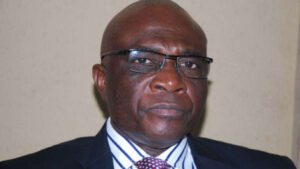
The state of press freedom in Nigeria: Navigating challenges in pursuit of truth
By Paulyn Owhievbie Ugbodaga (paulynugbodaga@gmail.com)
Press freedom stands as a cornerstone of democracy, a vital pillar that upholds transparency, accountability, and the fundamental rights of citizens. In Nigeria, a nation rich in diversity and complexity, the landscape of press freedom is interspersed with both progress and challenges. As journalists strive to uncover truths and hold power to account, they often find themselves navigating a terrain fraught with obstacles.
Nigeria’s journey toward press freedom has been a turbulent one, marked by periods of repression and resilience. Following independence in 1960, the Nigerian press emerged as a vibrant force, serving as a watchdog and voice for the people. However, the military regimes that dominated much of Nigeria’s early history often viewed press freedom as a threat to their authority. Journalists faced censorship, harassment, and imprisonment, as the government sought to control the flow of information.
In recent decades, Nigeria has made significant strides toward enhancing press freedom. The transition to civilian rule in 1999 brought renewed hope for a free and independent media. Constitutional guarantees of press freedom, coupled with the proliferation of independent media outlets, signaled a promising era for journalism in Nigeria.
However, challenges persist, casting a shadow over these advancements. Intimidation, harassment, and violence against journalists remain prevalent, particularly in conflict-prone regions and areas with entrenched political interests. Reporters covering sensitive topics such as corruption, human rights abuses, and religious extremism often face threats to their safety and livelihoods.
Nigeria boasts a legal framework that ostensibly protects press freedom. The 1999 Constitution guarantees freedom of expression and the press, while legislation such as the Freedom of Information Act seeks to promote transparency and accountability. Despite these legal safeguards, the enforcement and interpretation of these laws can be inconsistent, leaving journalists vulnerable to arbitrary arrest, prosecution, and censorship.
Beyond legal and physical threats, economic factors pose significant challenges to press freedom in Nigeria. Many media organisations struggle to sustain themselves financially, relying on advertising revenue and government subsidies to stay afloat. This dependence can compromise editorial independence, as media outlets may prioritise commercial interests over journalistic integrity. Additionally, low wages and precarious working conditions contribute to a culture of self-censorship, as journalists grapple with the fear of reprisals for daring to speak truth to power.
Amidst these challenges, the rise of digital media has emerged as a double-edged sword for press freedom in Nigeria. On one hand, social media platforms offer unprecedented opportunities for citizen journalism and grassroots activism, empowering individuals to disseminate information and amplify marginalised voices. On the other hand, online spaces can be breeding grounds for misinformation, hate speech, and digital censorship, exacerbating existing tensions and undermining public trust in traditional media.
As Nigeria navigates the complexities of press freedom in the 21st century, there is a pressing need for concerted action to safeguard the rights of journalists and uphold the principles of a free and independent press. Government authorities must demonstrate a commitment to upholding constitutional guarantees of press freedom, by refraining from undue interference in media operations and ensuring accountability for attacks against journalists.
Civil society organisations, advocacy groups, and international partners also have a crucial role to play in supporting the media community, providing training, legal assistance, and advocacy efforts to strengthen journalistic practices and defend press freedom rights.
In the pursuit of truth and accountability, journalists in Nigeria continue to defy adversity, risking their safety and livelihoods to shine a light on issues of public concern. Their resilience serves as a beacon of hope, inspiring a new generation of reporters to uphold the principles of press freedom and safeguard democracy for generations to come. As Nigeria grapples with the challenges of the modern media landscape, it is imperative that we stand united in our commitment to defending the rights of journalists to speak truth to power.
#freepress
#pressfreedom
#freedomofspeech
#freedomofexpression




